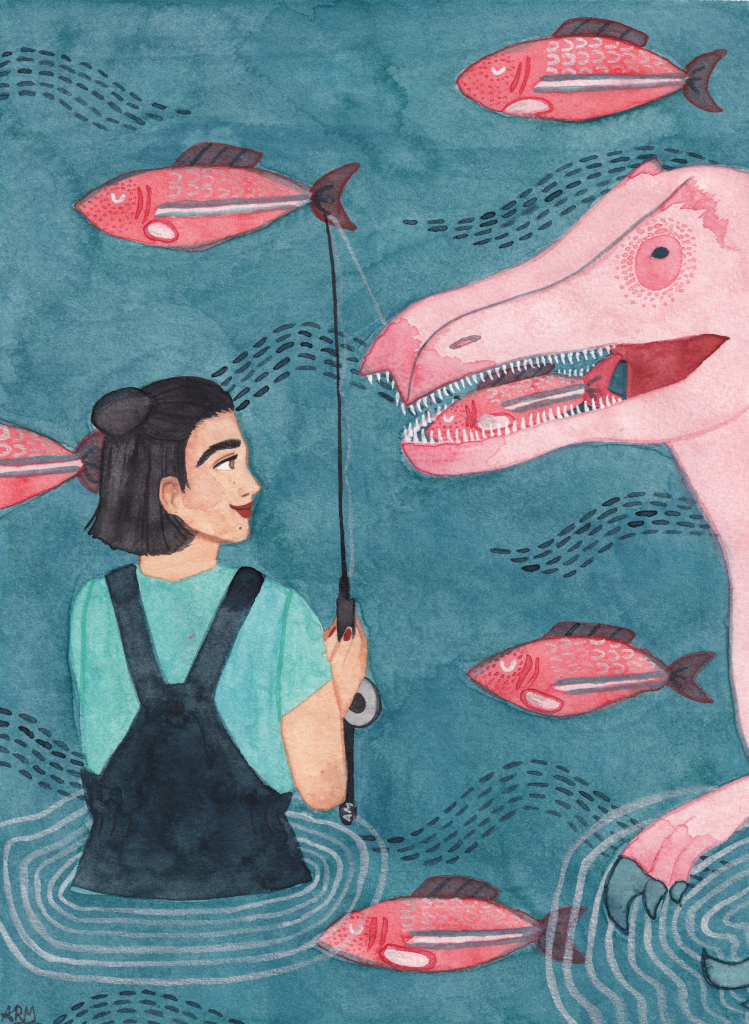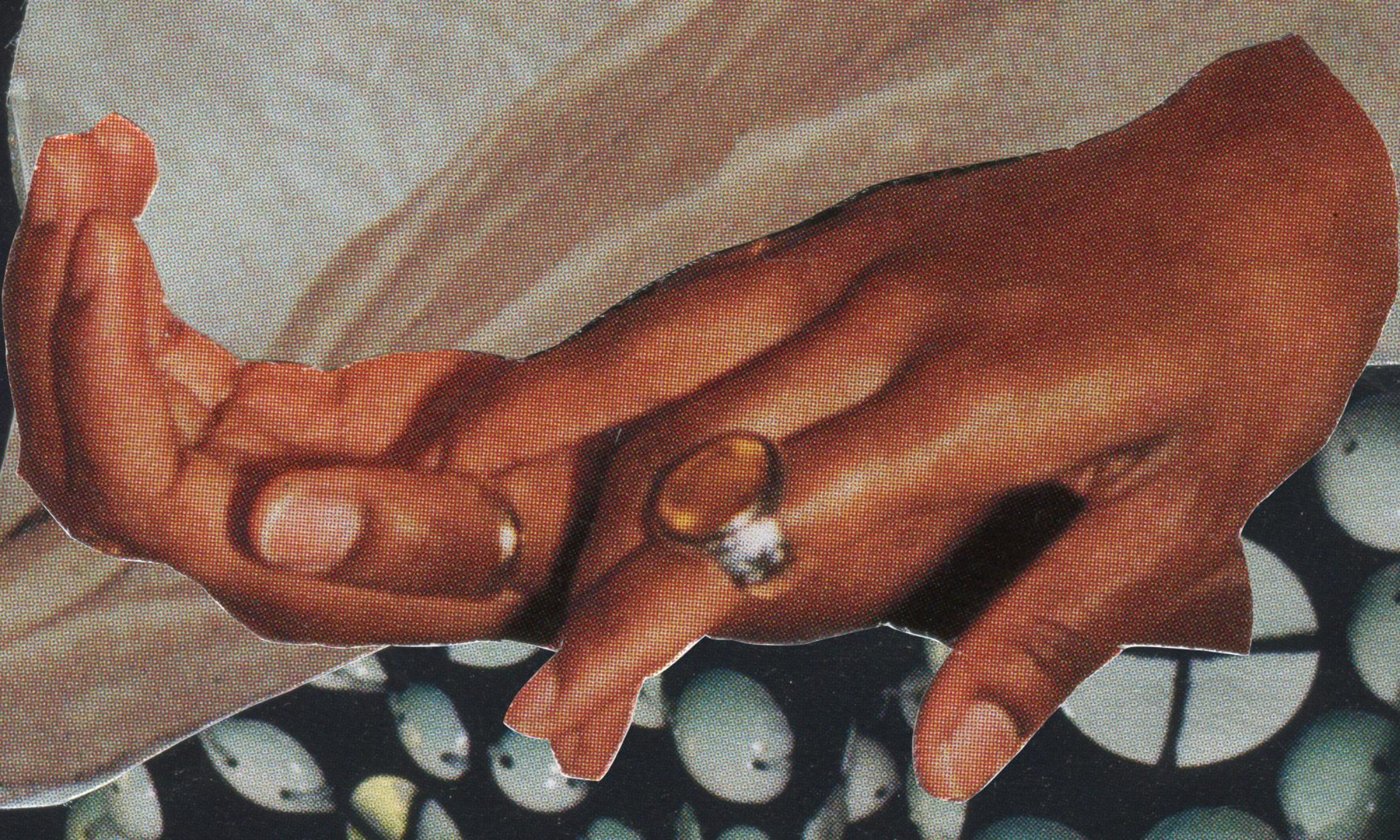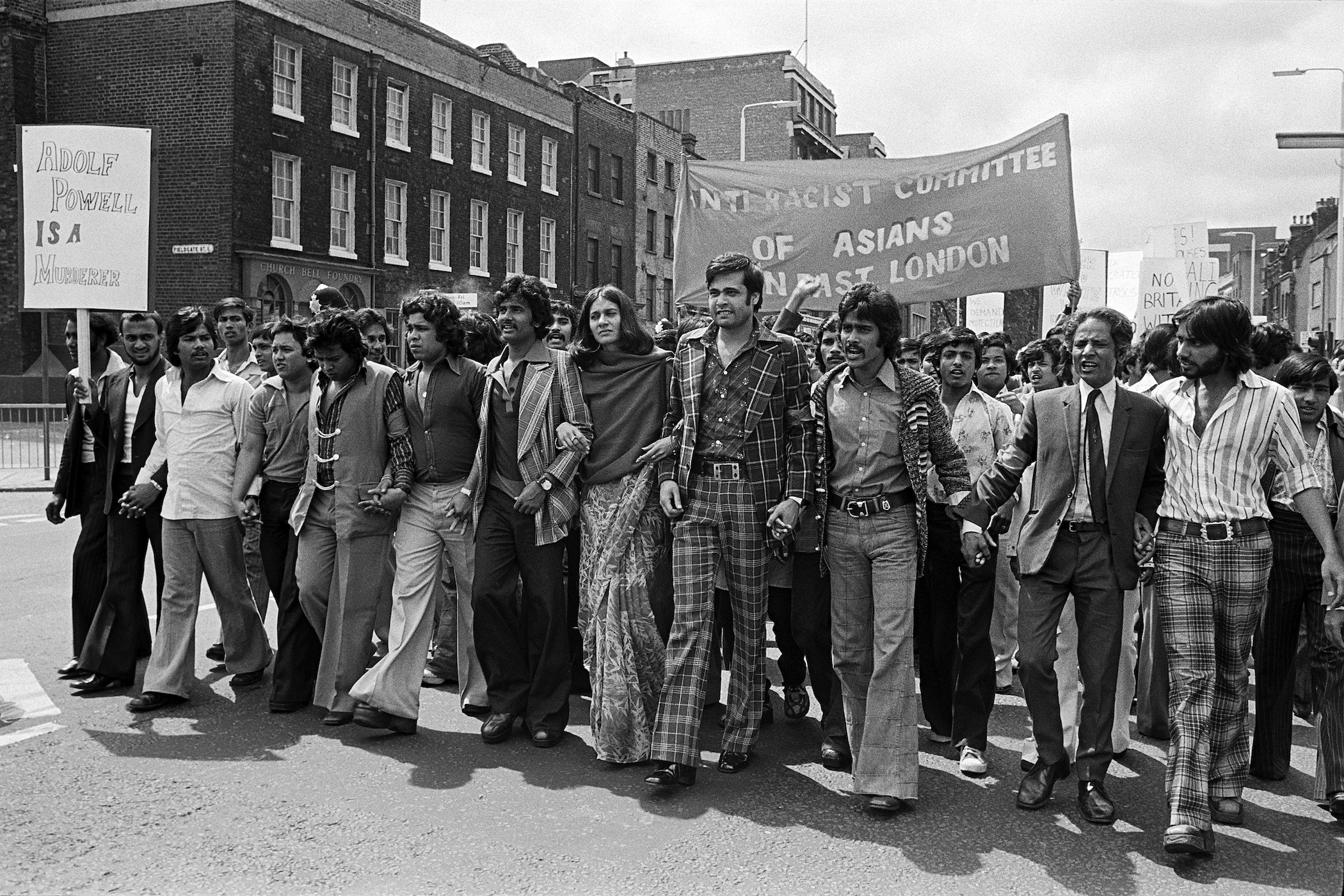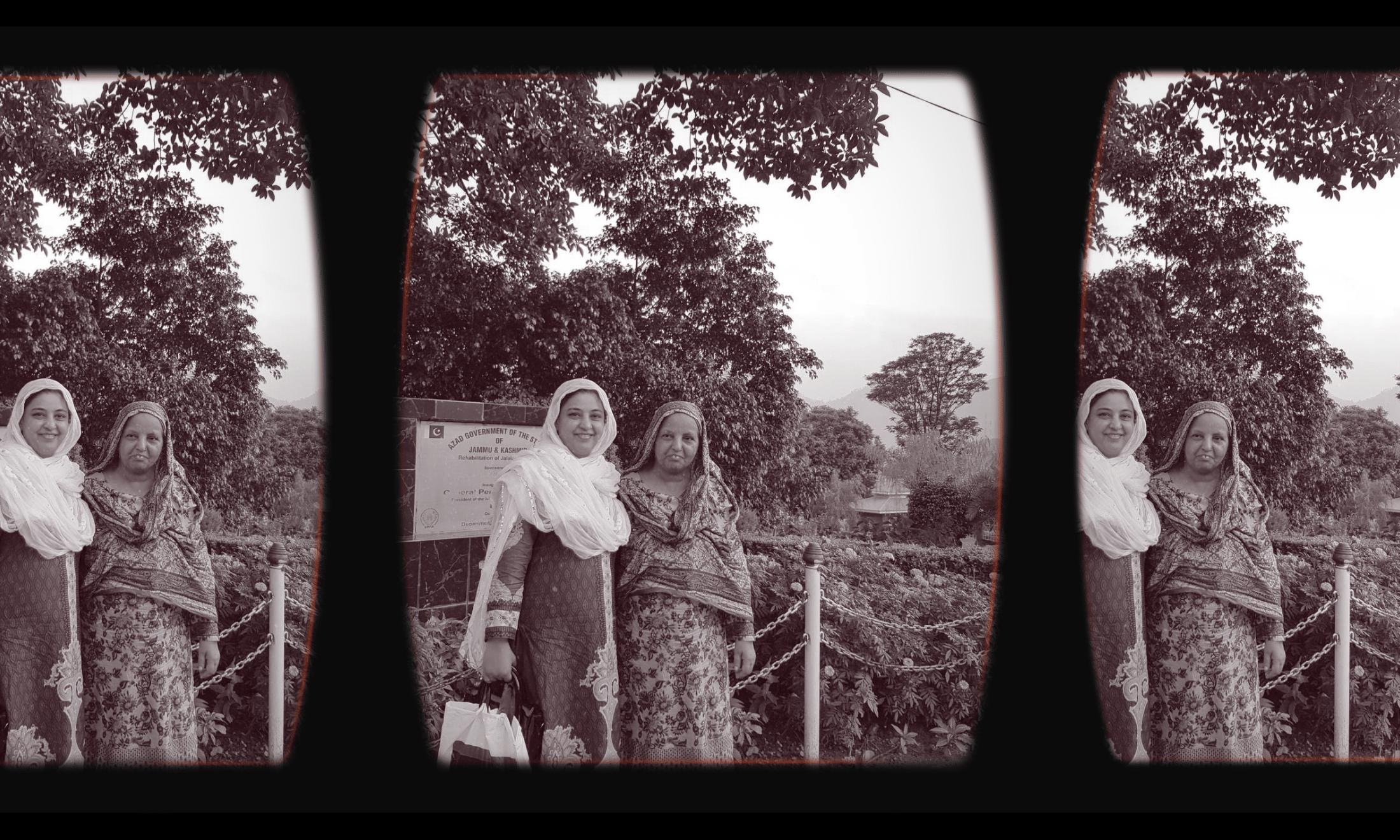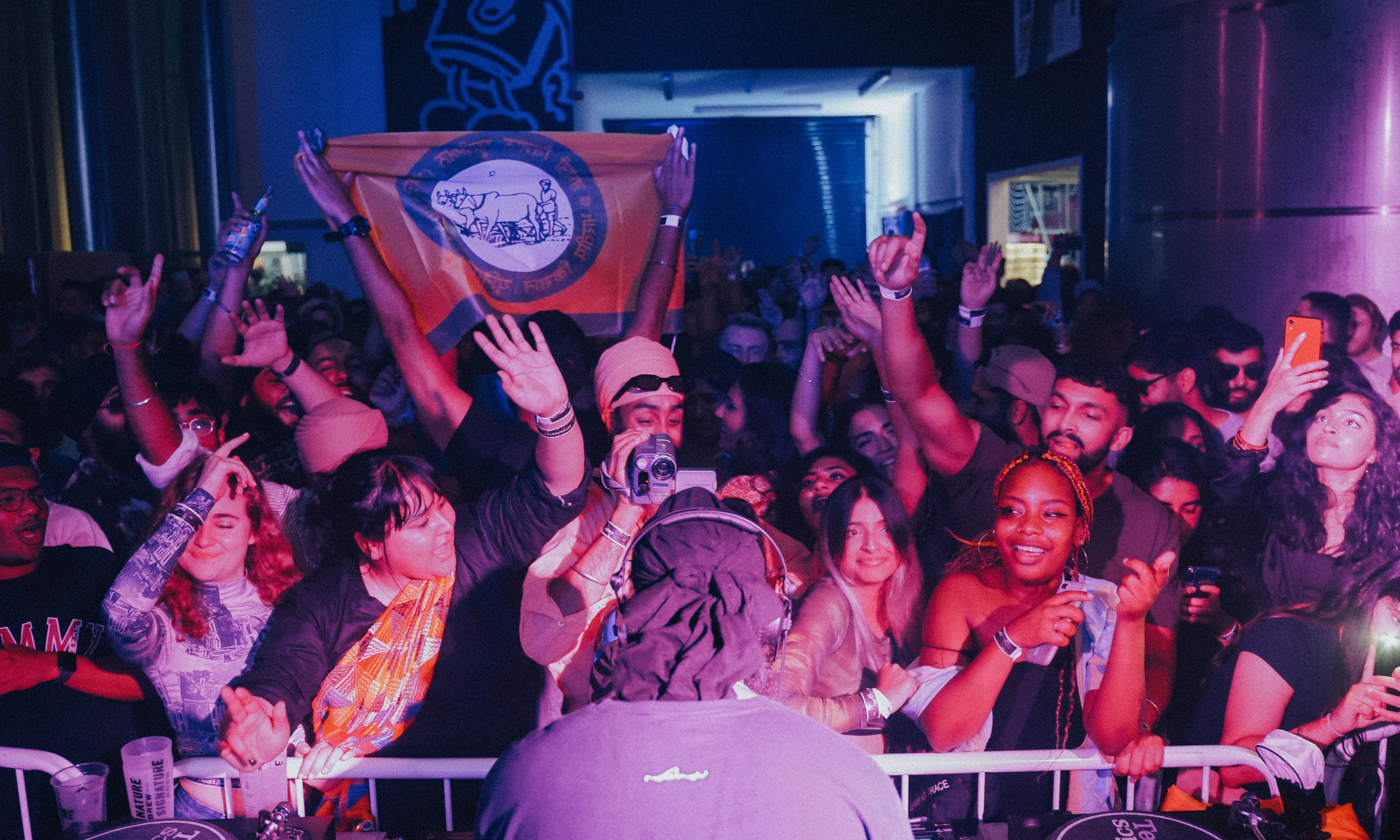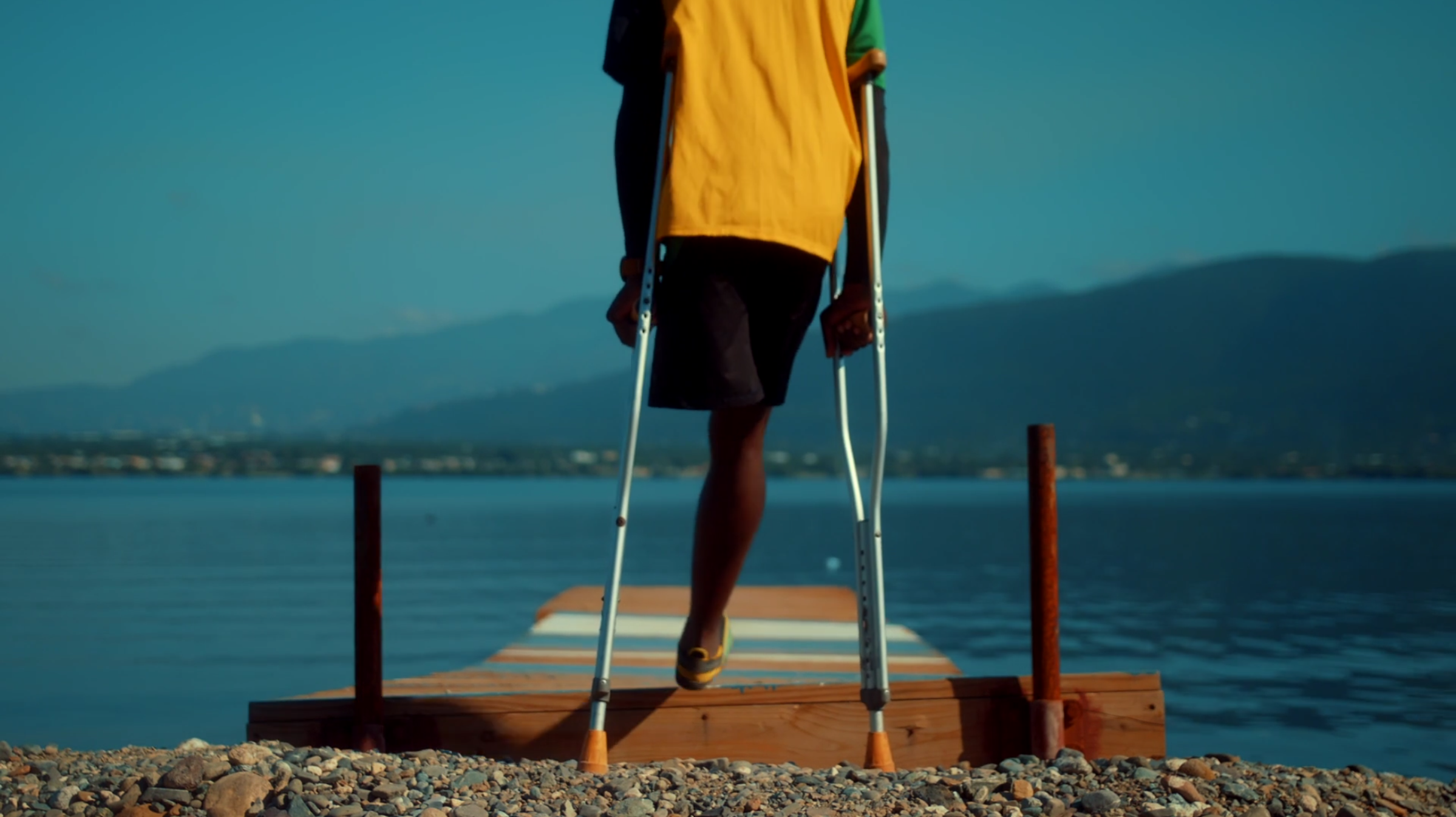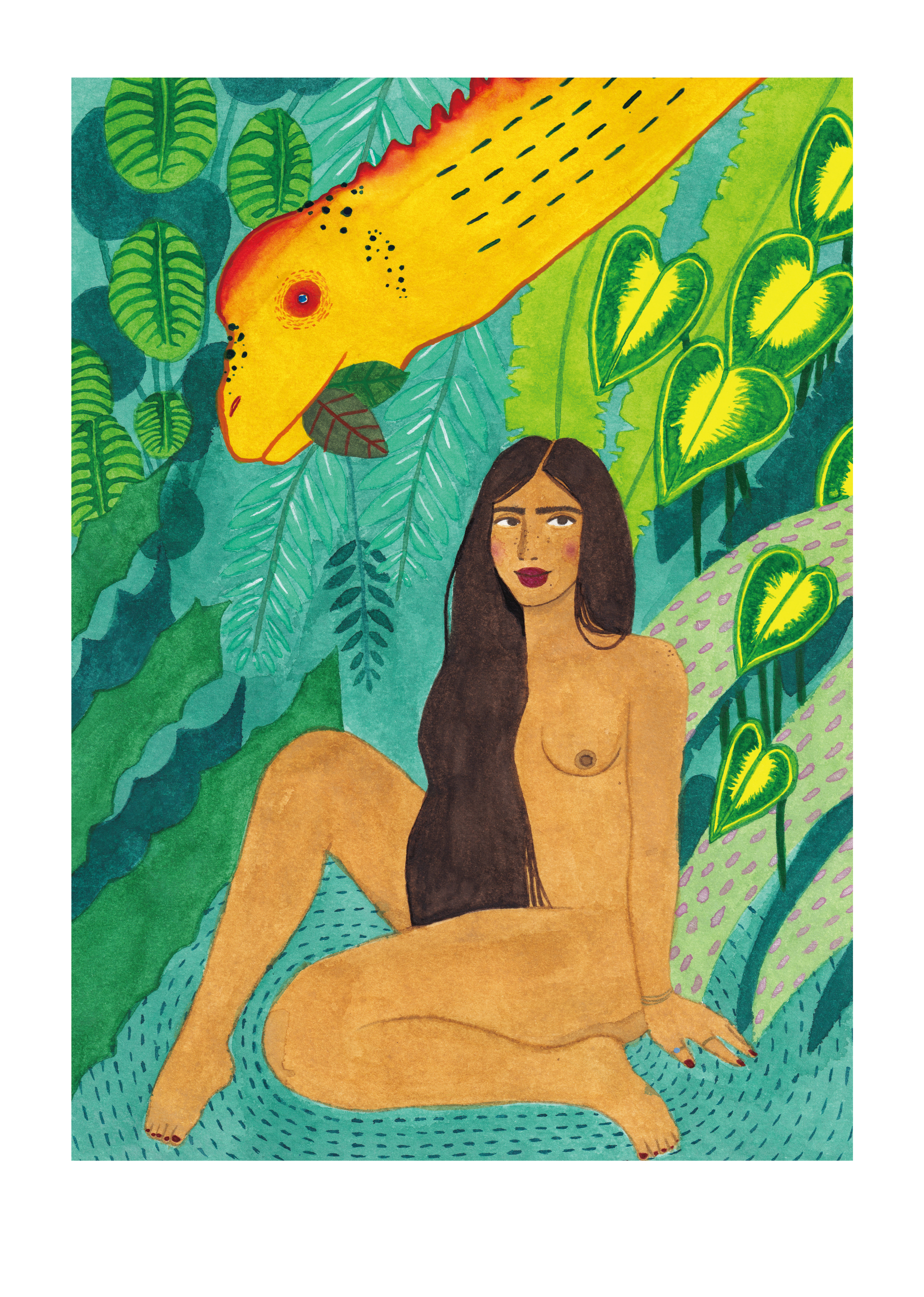
Ananya Rao-Middleton on using art to piece yourself back together after a brain injury
Trishna Shah
13 Aug 2019
Art pulled Ananya Rao-Middleton back from her lowest point. Last October, she was involved in a go-karting accident that resulted in whiplash and concussion and the resulting brain injury left her housebound.
“The majority of symptoms are invisible to others so you just look ‘normal’,” she explains. “What is scary is that there is no timeline in which you’ll recover; you have to feel at peace with that or it eats you up.”
While she may have been trapped inside, her imagination became an escape as she turned her hand at creating fantastical depictions of women of colour. Vivid, vibrant and explorative. Ananya used watercolours to create wild, tropical backdrops. Women were seen roaming with dinosaurs or amongst wildflowers, embodying the freedom and adventure she craved.
Having recently exhibited her work in Brighton, she’s gaining more conviction in her vision. “I’ve been able to embody my inner creative in a time of trauma and that’s incredible,” she explains.
At 26-years-old, Ananya is a self-confessed dork and says her friends describe her as “wise beyond her years”. Her South Indian heritage, which led her to study South Asian history, means she’s not afraid to address uncomfortable issues such as casteism and Hindutva fascism in her art.
Now, the London-based artist joins a roster of up and coming desi artists who use Instagram as a way of engaging with a wider audience, like Hatecopy, Paper Samosa and By Divya.
We caught up with her to talk about how art can be a tool to heal and self-define.
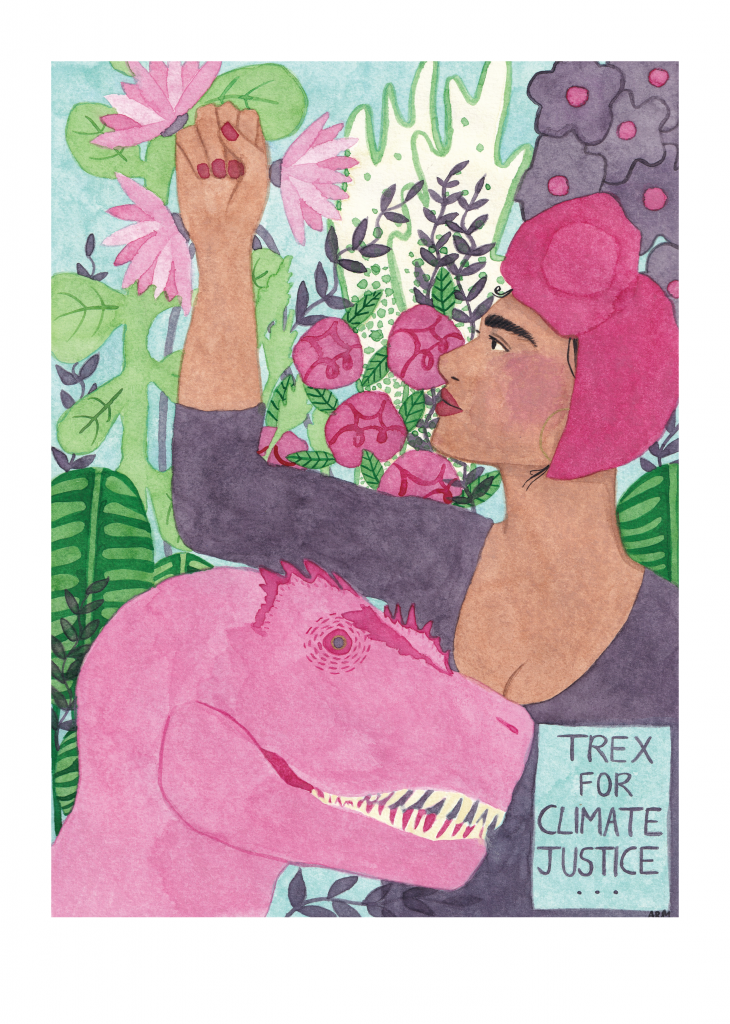
gal-dem: How did it feel learning to express yourself while recovering?
Ananya Rao-Middleton: Initially, I was feeling very isolated, anxious and depressed. I couldn’t use my phone, computer, watch TV or read, so I thought why not try painting? It was actually really difficult to paint the first couple of times because I was experiencing a lot of dizziness and “brain fog” that made painting steadily such a huge challenge. When I was finally able to concentrate I felt such a tremendous sense of calm, like my brain was relaxing for the first time since the accident. I was finally able to be myself, after feeling like a husk of a human being for months.
Why do you blend social commentary into your art?
I used to only draw white people! I was sketching people and writing stories about these characters that looked nothing like me. Now that I’m older, politicised and in touch with myself, I want to do justice to my younger self by showing her that it is possible for women of colour to be in art. I want to show that women of colour are not just a monolith; our experiences and position in society is so different.
What advice would you give to other brain injury survivors or who have also suffered post-concussion syndrome?
1) Don’t focus on aiming to be the same person you were before your brain injury. An important aspect of healing psychologically from the trauma of a brain injury is accepting the person you are in this moment. You might never be the same person, but that’s okay. Your ‘new normal’ is still you, and you can live an enriching and fulfilling life.
2) Be your own advocate. Especially in the UK, most health care professionals are not concussion specialists and it is important to advocate for the kind of treatment you need. Push your GP to refer you to a concussion clinic; concussion care must be interdisciplinary so push to get the treatment you need and deserve.
3) I received very outdated advice to rest until I reach zero symptoms and then to start exercising. That didn’t work for me nor many other Post Concussion Syndrome (PCS) survivors. Gradually get your body used to what you used to do. Find a concussion exercise recovery plan and trust your body.
4) Reach out to other PCS survivors! PCS is such a lonely and isolating thing to go through, but there is an incredibly supportive and warm community of PCS warriors and survivors out there who you can share your experiences with. I don’t think I would have gotten through the worst of it without my community of PCS women I found online.
How did art help your recovery?
Finding my passion really helped! Being creative was a way for me to see that there is continuity between the old and the ‘new’ me, and I felt that I have been able to heal through my art because it’s united my pre- and post-accident self. I would hope that creative expression can help other brain injury survivors mentally breath and escape from their injury.
